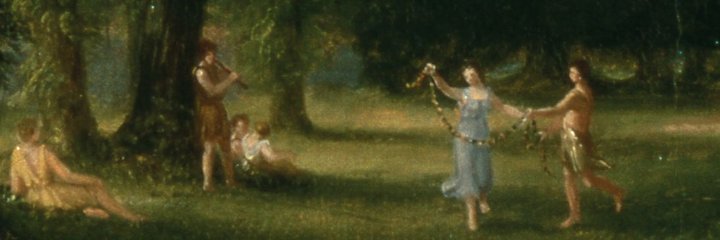
Us and Them
小國寡民 It was a tiny town, just a few neighbours. 使有什伯之器而不用 使民重死而不遠徙 They gave us machines to produce ten times more, but we wouldn't use them. So they threatened to kill us, but we didn't cut and run. 雖有舟輿無所乘之 Even if we had ships and wagons, there was nowhere to go. 雖有甲兵無所陳之 Even if we had armour and weapons, that was no way to resist. 使民復結繩而用之 Then they made us pay taxes, but they took it all for themselves.
甘其食 美其服 安其居 樂其俗 Our food was delicious, our clothes were beautiful, our homes were peaceful, our ways were friendly. 鄰國相望 雞犬之聲相聞 Neighbouring towns within sight of each other, our chickens and dogs could hear one another. 民至老死不相往來 Neighbours died of old age and weren't cruel or kind to each other.
Notes
I think this poem tells a story of long ago and far away, when human 道 was ascendant, when people weren't colonizing and exploiting each other, when the rich and powerful weren't violent, dangerous thugs, and when normal people didn't do terrible things to each other to get ahead, or just to survive, and acts of kindness weren't heroic, just a matter of course.
I also think that, while this poem is a lament, it's also an affirmation of the inevitability and immanence of a human 道 of good neighbours 民 who share the beauty 美 and joy 樂 of peace 安 and contentment 甘.
In the Yijing, 往來 is the back and forth of wishy-washy indecision, of the destructive motion of a violent earthquake, of the rhythm of well water as seasons change. Here I think it's what neighbours do to and for each other. It's our very personal response to the twists and turns of the deadly, inescapable, invincible, impersonal forces that shape us.
無所乘之 and 無所陳之 are, "There was nothing [towards/against] which we could [sail/haul/pit] our [boats/wagons/army]."
復結繩 is remit talking knots, referring to a method of using knotted cords to keep track of [social obligations and benefits?].